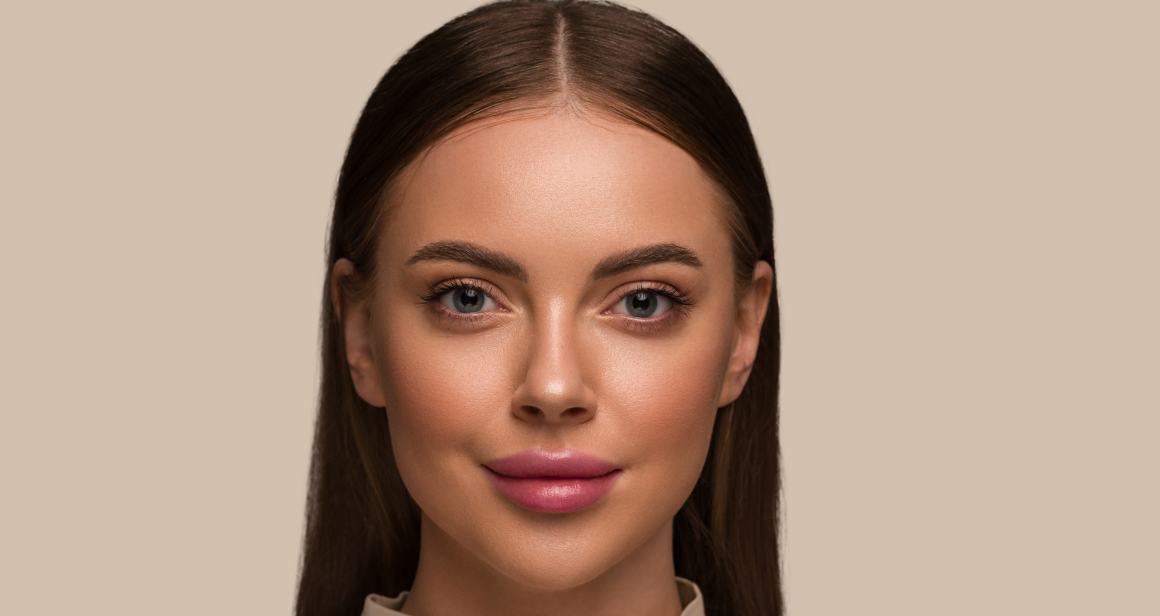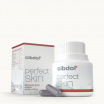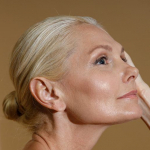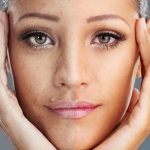How can i make my face look younger?
Published:
Categories: CollagenWant to knock years off your appearance without going under the knife? There are many inexpensive and non-invasive ways to make yourself look younger and more vibrant. Read on to discover dermatologist-approved anti-aging secrets to restore your youthful glow.
Contents:
- Outline:
- Detailed Explanations:
- In Summary:
-
Frequently Asked Questions
- How can I get rid of wrinkles overnight?
- What foods are bad for your skin and make you look older?
- Can smoking reverse aging skin?
- How can I tighten my face without surgery?
- What hairstyles make you look younger?
- How can I prevent my neck from aging?
- What makeup tips make you look younger?
- How can I get smooth skin like a baby?
- What causes your face to age faster?
- Resources used to write this article
Looking young and vibrant has less to do with genetics and more to do with proper skincare and healthy lifestyle choices. By hydrating, protecting, and nourishing your skin, as well as making subtle makeup and hair changes, you can easily look 5-10 years younger. Keep reading to learn the 10 best-kept secrets for maintaining a youthful appearance at any age!

Outline:
What Causes Skin to Look Older?
- Exposure to sun
- Lack of moisture
- Loss of collagen and elastin
- Dead skin cell buildup
- Dull, uneven skin tone
1. Use Sunscreen Religiously
- Prevent future sun damage
- Sunscreen recommended every day
- Aim for SPF 30 or higher
- Apply liberally to face and exposed skin
2. Moisturize, Moisturize, Moisturize
- Skin loses moisture as we age
- Hydration plumps up skin and fills in lines
- Look for humectant ingredients like hyaluronic acid
- Avoid products with fragrance, which can irritate
3. Exfoliate Regularly
- Removes dead skin to reveal fresh skin underneath
- Try chemical exfoliants with AHA or BHA
- Be gentle and don't over-exfoliate
4. Use Retinoids
- Stimulate collagen production
- Fade sun spots and discoloration
- Consult a dermatologist for prescription strength
5. Vitamin C is Your Friend
- Potent antioxidant protects from UV damage
- Boosts collagen synthesis
- Look for stable formulas like magnesium ascorbyl phosphate
6. Eat Collagen-Boosting Foods
- Collagen provides structure to the skin
- Food sources include bone broth, citrus fruits, berries
- Consider a marine collagen supplement
7. Wear Sunglasses
- Sun exposure causes crow's feet and wrinkles around eyes
- Look for 100% UV protection when buying shades
- Large frames visually "lift" the face
8. Switch Up Your Makeup Routine
- Use illuminating, light-reflecting makeup
- Try a CC cream with color-correcting tones
- Swap black liner for brown
- Go easy on powder
9. Style Your Hair to Flatter Your Face
- Hairstyle and color impacts perceived age
- Add face-framing layers around your face
- Try bangs to camouflage forehead wrinkles
10. Don't Smoke and Limit Alcohol
- Smoking accelerates the aging process
- Drinking dehydrates the skin
- Aim for 7-8 hours of sleep per night
Detailed Explanations:
What Causes Skin to Look Older?
Many extrinsic and intrinsic factors cause our skin to show signs of aging as we get older. Sun exposure is the number one cause of premature aging. UV radiation from the sun breaks down collagen and elastin in the skin, leading to wrinkles and sagging. Skin also becomes drier over time and loses its ability to retain moisture, resulting in a crepey, dull appearance. Dead skin cell buildup combined with uneven pigmentation makes the complexion look patchy. Finally, as we age, our skin naturally loses collagen, resulting in the formation of fine lines and wrinkles. Knowing what causes aging skin can help you better combat the problem areas.
1. Use Sunscreen Religiously
Dermatologists overwhelmingly agree that sunscreen is the most important anti-aging skincare product. Daily use of sunscreen is crucial for preventing future sun damage, including discoloration, wrinkles, and skin cancer. Look for a broad spectrum sunscreen with an SPF of at least 30. Be sure to apply a quarter teaspoon to your face alone to achieve full protection. Reapply every two hours when spending time outdoors. Choosing a lightweight, non-comedogenic formula meant for daily wear ensures you’ll use sunscreen consistently. Making sunscreen a habit is one of the most effective ways to maintain a youthful, wrinkle-free complexion.
2. Moisturize, Moisturize, Moisturize
Skin naturally loses hydration as it ages, resulting in a drier complexion and accentuated fine lines and wrinkles. Using a moisturizer twice daily helps plump up the skin with hydration and gives skin a dewy, glowing appearance. Look for moisturizers containing humectants like hyaluronic acid, glycerin, ceramides, and urea to draw and seal in moisture in the top layers of the skin. Avoid products with added fragrances, which can irritate aging skin. Be diligent about moisturizing the neck and chest as well to prevent dryness and maintain an even skin tone.
3. Exfoliate Regularly
As we age, skin cell turnover slows down, resulting in a buildup of dead skin cells on the surface of the skin. This dull, flaky layer makes the complexion appear older. Exfoliating removes this top layer of dead cells to reveal the fresh, radiant skin underneath. Look for gentle exfoliants like alpha hydroxy acids (AHAs) such as glycolic acid or lactic acid. These chemical exfoliants dissolve the bonds between dead skin cells. You can also try beta hydroxy acids (BHAs) like salicylic acid to keep pores clear. Be careful not to over-exfoliate, which can cause irritation. 1-2 times a week is sufficient for most skin types.
4. Use Retinoids
Retinoids are vitamin A derivatives that are highly effective at preventing and treating signs of aging. Available by prescription, retinoids boost collagen production and stimulate cellular turnover to reveal younger skin. They also fade dark spots and treat acne. Common forms include tretinoin, adapalene, and tazarotene. Side effects like dryness, peeling, and sun sensitivity are common at first. Ask your dermatologist what strength and formula are right for your skin. Over-the-counter retinol is a gentler alternative for easing into retinoid use.
5. Vitamin C is Your Friend
Vitamin C is a powerhouse antioxidant that protects the skin from damaging free radicals caused by UV exposure. It also regulates collagen synthesis to prevent wrinkling and sagging skin. Look for vitamin C serums with stable forms like magnesium ascorbyl phosphate. Vitamin C works best when used in combination with vitamin E and ferulic acid. Use vitamin C serum in the mornings followed by moisturizer and sunscreen.
6. Eat Collagen-Boosting Foods
Collagen is the main structural protein that keeps skin plump and supple. By the time we are in our late 20s, collagen production starts declining. Make sure your diet includes foods that help boost the body's natural collagen production. Bone broth, beans, citrus fruits, berries, dark green veggies, tomatoes, and garlic are excellent sources. You can also consider taking a marine collagen supplement for added skin benefits.
7. Wear Sunglasses
Don't forget your sunglasses! Squinting and unprotected sun exposure around the delicate eye area leads to crow's feet, wrinkles, dark circles, and sun spots. Always wear sunglasses with 100% UV ray protection when spending time outdoors. Styles with large, wraparound frames help shield the eye area and prevent squinting. Look for lightweight materials that won't leave marks on your face.
8. Switch Up Your Makeup Routine
Makeup application techniques can play a big role in helping you look refreshed and youthful or accentuating fine lines and wrinkles. Swap your matte foundation for a luminous, light-reflecting liquid formula to give the appearance of plump, glowing skin. Try color-correcting CC creams with different shades to even skin tone and diminish the look of sun spots. Use cream-based products, which helps prevent caking and settling into fine lines. Avoid powder, which clings to dry skin. Swap black eyeliner for soft brown hues. Focus eye makeup on lashes rather than liner to open up the eyes.
9. Style Your Hair to Flatter Your Face
Your hairstyle and color can make a big difference in looking youthful or aging you. Avoid overly structured styles, which can be unflattering and harsh. Instead, add face-framing layers around your face to soften features. Side-swept bangs can camouflage wrinkles on the forehead and crow's feet around the eyes. Lightening your hair color a few shades imparts a younger, fresher look. Avoid drastic dying that can damage hair. Seek professional expertise on finding a cut and color that brings out your best features.
10. Don't Smoke and Limit Alcohol
Your lifestyle choices significantly impact how old you look. Smoking cigarettes causes the breakdown of collagen and elastin as well as premature wrinkling around the mouth. Excessive alcohol consumption causes fluid loss, leaving skin looking dry and dull. Make sure you are getting 7-8 hours of sleep per night since rest is crucial for cellular repair. Manage stress levels through yoga, meditation, or journaling. Eat a nutrient-rich diet full of antioxidant foods like leafy greens and berries for healthy-looking skin.
In Summary:
- Use broad spectrum SPF 30 sunscreen daily to prevent UV damage
- Moisturize morning and night to hydrate dry, aging skin
- Exfoliate 1-2 times per week to remove dead skin cell buildup
- Talk to your dermatologist about adding a retinoid to boost collagen
- Apply vitamin C serum each morning to protect skin and fade dark spots
- Eat collagen-boosting foods like citrus, berries, and bone broth
- Protect your eyes from sun damage by wearing large sunglasses
- Opt for luminous, hydrating makeup that brightens dull skin
- Get a face-flattering hairstyle with layers and light coloring
- Don't smoke, limit alcohol, sleep 7-8 hours, and manage stress
Making small but impactful changes to your skincare, makeup, hair, and lifestyle habits can visibly take years off your appearance. Be diligent about sun protection, hydration, and collagen support for youthful-looking skin at any age. With the right techniques, it is possible to roll back the clock and achieve a gorgeous, radiant complexion.
Frequently Asked Questions
How can I get rid of wrinkles overnight?
Unfortunately, there is no magic cure to get rid of wrinkles overnight. The tips in this article can help reduce the appearance of fine lines and wrinkles over time through proper skincare, but dramatic changes will take months of consistency. Consider talking to a dermatologist about laser treatments, injectables, or prescription retinoids for more dramatic anti-aging effects.
What foods are bad for your skin and make you look older?
Foods high in sugar, refined carbs, and unhealthy fats can negatively impact skin and accelerate aging. Limit sweets, soda, white bread, chips, fried foods, and processed meat. Focus on antioxidant-rich fruits, vegetables, nuts, seeds, lean proteins, and healthy fats for more youthful skin. Staying hydrated with water is also key.
Can smoking reverse aging skin?
No, smoking has the opposite effect and drastically ages skin. Smoking causes the breakdown of collagen and elastin which leads to wrinkles around lips and eyes as well as sagging skin. Smoking also reduces blood flow to the skin, depriving it of nutrients and oxygen that keep skin youthful. Quitting smoking can greatly improve skin tone and texture.
How can I tighten my face without surgery?
To naturally lift and tighten facial skin, use topical retinoids to boost collagen. Vitamin C, peptides, and growth factors also help firm skin. Skin-strengthening laser treatments like Ultherapy use focused ultrasound to stimulate collagen. Gua sha massage and facial exercises tone underlying muscles for a sculpted look.
What hairstyles make you look younger?
Face-framing layers, soft waves, volume at the crown or sides, and sideswept bangs can make hair look fuller and shave years off your look. Avoid severely pulled back styles, which can tug the face downward. Go for warm, multidimensional hair colors using highlights rather than harsh dyes. Treat hair gently and use hydrating masks to reduce frizz.
How can I prevent my neck from aging?
Apply your skincare products like serums, moisturizers, and sunscreen all the way down to the neck and chest to prevent sagging and wrinkles. Sleep on your back or side to avoid "sleep lines". Exfoliate the neck 2-3 times a week. Perform facial yoga exercises that engage the neck muscles. Treat visible signs of aging on the neck with topical retinoids, peptides, and radiofrequency treatments.
What makeup tips make you look younger?
Use luminous, light-reflecting foundations and concealers to give skin a radiant glow. Cream blushes and lipsticks plump up the skin. Avoid powder which settles into lines. Swap black liner for brown and define eyes using mascara instead of liner. Fill in eyebrows fully using feather-like strokes. Highlight the inner corners of eyes and high points of face with concealer or shimmery shadow.
How can I get smooth skin like a baby?
While it's not possible to completely turn back the clock, diligently practicing proper skincare can help restore soft, smooth skin. Daily use of moisturizers containing hydrating ingredients like hyaluronic acid and ceramides is key. Chemical exfoliants help remove dead skin cells. Using retinoids boosts collagen and improves texture. Avoid fragrances, alcohol, and harsh ingredients that can irritate the skin barrier. Drink plenty of water.
What causes your face to age faster?
Sun exposure is the number one factor that accelerates skin aging. Smoking, environmental pollutants, stress, inadequate sleep, dehydration, and poor nutrition also speed up the aging process. To slow facial aging, wear sunscreen daily, moisturize, eat a healthy diet, stay active, get 7-9 hours of sleep per night, reduce stress, and avoid smoking. Get regular skin exams to detect any skin cancers early.
Let me know if you would like me to expand or clarify anything in the FAQ section. I'm happy to add more questions and answers as needed.
Resources used to write this article
American Academy of Dermatology Association. (2022). How to rejuvenate your skin. https://www.aad.org/public/everyday-care/skin-care-secrets/anti-aging/how-to-rejuvenate-your-skin
Bahng, H.Y., Singh, G., Bhinder, F., Golzar, Y., Zembowicz, A., & Ahmad, N. (2019). Characterization of facial skin aging in Hispanics. Aesthetic Surgery Journal, 39(3), NP85–NP93. https://doi.org/10.1093/asj/sjy348
Baxter, R. A. (2008). Anti-aging skin care. Milady Publishing Company.
Food and Drug Administration. (2022). LABELING - GUIDANCE - SUNSCREEN DRUG PRODUCTS FOR OVER-THE-COUNTER HUMAN USE. https://www.fda.gov/regulatory-information/search-fda-guidance-documents/labeling-guidance-sunscreen-drug-products-over-counter-human-use
Harvard Health Publishing. (2021). 12 ways to keep your skin looking young. https://www.health.harvard.edu/staying-healthy/12-ways-to-keep-your-skin-looking-young
OyetakinWhite, P., Tribout, H., & Baron, E. (2015). Protecting the skin from ultraviolet radiation injury: A review of sunscreen regulation and safety. Photodermatology, Photoimmunology & Photomedicine, 31(2), 57-64. https://doi.org/10.1111/phpp.12147
Papakonstantinou, E., Roth, M., & Karakiulakis, G. (2012). Hyaluronic acid: A key molecule in skin aging. Dermato-Endocrinology, 4(3), 253–258. https://doi.org/10.4161/derm.21923
Pillaiyar, T., Manickam, M., & Jung, S. H. (2017). Downregulation of matrix metalloproteinase-1 expression by acteoside promotes anti-wrinkle effect in UVB-irradiated human dermal fibroblasts. Experimental Dermatology, 26(4), 283–290. https://doi.org/10.1111/exd.13167
Pullar, J. M., Carr, A. C., & Vissers, M. (2017). The Roles of Vitamin C in Skin Health. Nutrients, 9(8), 866. https://doi.org/10.3390/nu9080866
Rinnerthaler, M., Bischof, J., Streubel, M. K., Trost, A., & Richter, K. (2015). Oxidative stress in aging human skin. Biomolecules & Therapeutics, 23(2), 189-201. https://doi.org/10.4062/biomolther.2014.142
Sign up to our newsletter and enjoy 10% off one order
YOU MIGHT ALSO LIKE
Post related products
-

Look Younger CIBD0073
-



















